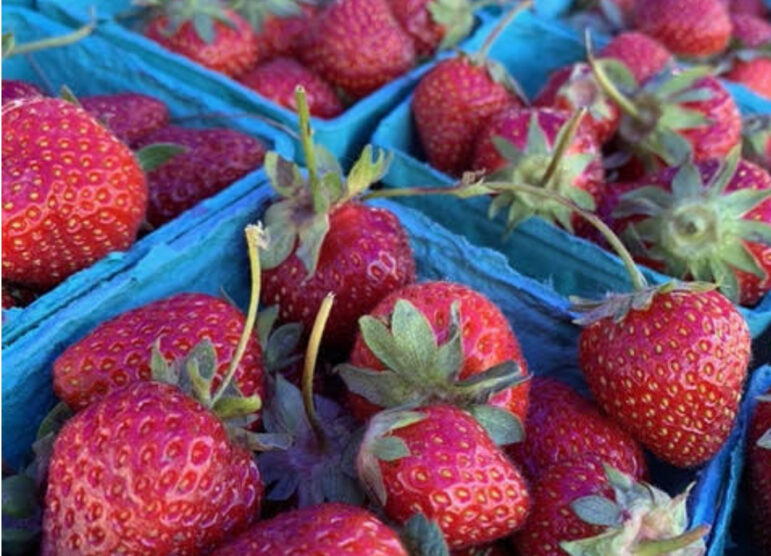Submitted by Ali Ghiorse
A few years ago, on a crisp autumn afternoon, I was driving home from backcountry Greenwich, after a visit to Versailles Farm. I was inspired by the bounty that I sourced throughout the day. Fresh cut zinnias; colorful and bright, leaf lard for pie crust, handcrafted cheese delicately wrapped in parchment paper, and pasta, made from an ancient grain senatore cappelli, also handcrafted. I spent the morning at the Farmers Market, Holly Hill food scrap shed drop-off, and my garden plot at Armstrong Court where I grow culinary herbs. Grateful to the growers and artisans who filled my pantry with the tastes of the season, purchasing their goods did not feel like enough, and I wanted to do more.

As a former chef, I spent over twenty years cooking. I learned early on that my culinary success was dependent upon sourcing ingredients directly from farmers and fisherfolk, especially those who cultivated heirloom varieties and breeds. I made it my mission to create menus that told a story rooted in ancestral history. The relationships with the producers of the food I cooked, inspired and underpinned my commitment to protecting regional water and foodsheds.
This might sound like privilege, and out of reach for most people. And in some ways it is. Yet, it shouldn’t be.
How and where we source our food is inextricably linked to our health and cultural legacies. Access to fresh local food is a human right. Yet many communities experience barriers due to affordability, inequitable policies, and lack of access to land and regional infrastructures.
These barriers stem from the industrial food system, which is designed to increase profits not benefit the health of people or preserve our natural resources. The cost is a disconnection to real nourishment and where and how our food is grown.
For example, supermarket chains do little to highlight farmers, or reflect regional seasonal food. Thanks to the hard work of many organizers, coalitions and thought leaders over the last decades, determined to create more equitable and sustainable food systems, new foodshed landscapes are emerging, shifts are happening, awareness is expanding and momentum is building.

The Foodshed Network (TFN) was inspired by people in our community who uphold the integrity of food and agriculture. A free educational resource, TFN website highlights the initiatives, organizations and businesses that are advancing a regional and regenerative food system agenda. The website is meant to catalyze conversations, providing a lexicon, and featuring leaders who center equity and justice as guiding principles for change. To make a living in food and farming using sustainable and artisanal practices, takes tremendous sacrifice and hard work. As consumers in this movement, we must stay informed, educate ourselves about the larger context, and offer our support.
The Foodshed Network is a tool to help guide people who care about these issues and want to make better choices. We also facilitate two initiatives. In partnership with Greenwich Conservation Commission, we convene the Greenwich Food System Forum. Join our upcoming webinars for our next two events Cultivating Connecticut Grown By Land and Cultivating Connecticut Grown By Sea happening on May 4th and June 1st. In partnership with the Greenwich Sustainability Committee, we convene the Greenwich Food Alliance. Anyone who is interested in learning more please reach out; [email protected].
Thank you to the many food system changemakers in Greenwich that continue to make an impact towards change; such as – Fairfield Greenwich Cheese Company, IL Pastficio, Raphael’s Bakery, Coffee For Good, Greenwich Community Gardens, Food Rescue US, Pollinator Pathway, Live Eat Cook Healthy, Greenwich Food Scrap Recycling Program, all the Farmers Markets, and Garden Clubs throughout town. WE need you to thrive.
Ali Ghiorse is the Founder of The Foodshed Network and the Chair of the Greenwich Sustainability Committee’s Food System Sector.